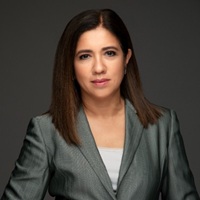


Susy Aryani, Independent Legal & Corporate Governance Consultant, makes the case for redefining the ‘ideal worker’ to support equity, caregiving and balance for all.
The notion that the “ideal worker” is someone whose life revolves entirely around their job and is always available, always responsive, has been a topic of ongoing debate for as long as I can remember.
But from a human perspective, is this truly sustainable, especially as we evolve into different roles throughout our lives? The expectation for employees to be perpetually available for the job, without regard for personal needs, family responsibilities or mental well-being, is increasingly difficult to maintain. Why? Because it is fundamentally flawed and unrealistic.
As societal norms around gender roles evolve, many of us find ourselves balancing professional commitments with personal ones – becoming caregivers, parents and active members of our communities. Yet, there is a clear double standard in the way these responsibilities are perceived in the workplace. When a woman steps away for a couple of hours to attend her child’s concert, it is often met with scepticism. Her commitment to her work is questioned and her reliability is called into doubt. Conversely, when a man takes time off for similar reasons, he is often applauded for being a “dedicated” father. This disparity reflects the deep-rooted societal biases that continue to shape our perceptions of gender and responsibility. There is also limited acknowledgment of the structural imbalance that continues to benefit men in the workplace. Many men have historically (and often still) relied on the support of a stay-at-home wife or a working partner who manages the bulk of household responsibilities, childcare and daily family logistics. This often-unseen support system allows them to devote greater time and energy to their careers. Women, by contrast, are far less likely to receive such comprehensive support, yet they are held to the same professional expectations without the same foundation at home.
“True inclusivity involves recognising that everyone, regardless of gender, deserves the opportunity to thrive in both their professional and personal lives.”
To be fair to men, corporate culture often fails to recognise that men too, have meaningful roles within the household and family life. Because women are still widely expected to shoulder the bulk of caregiving and domestic responsibilities, men are often implicitly excused from these duties, especially in professional settings. As a result, men are rarely encouraged or even allowed the same flexibility to participate in family life without professional repercussions. This imbalance is not only unfair but unsustainable in the long term.
As we continue to push for more inclusive, equitable workplaces, it is essential for both men and women to be able to navigate the balance between career and family without facing discrimination or judgment. True inclusivity involves recognising that everyone, regardless of gender, deserves the opportunity to thrive in both their professional and personal lives. Creating such environments benefits everyone. When men are supported in taking parental leave or adjusting work schedules for caregiving and women are not penalised for doing the same, we begin to break down the stereotypes that hold us all back. We create space for healthier families, more engaged employees and ultimately, stronger, more forward-thinking organisations.
A work culture that values work-life balance, encourages shared responsibility in the home and promotes respect for diverse roles outside the office is the kind of environment that would benefit all of us as we move forward in an evolving world.
About the author:
Dynamic female leader with over 25 years of international experience gained as General Counsel/Chief Legal Officer and Chief Operating Officer, having worked in having worked in diverse markets such as London, Singapore, Japan, Indonesia and the United Arab Emirates.
Experienced English solicitor with a track record of managing complex international transactions in both the private and public sector, in the areas of Mergers and Acquisition, Private Equity, Debt and Equity Restructuring, Joint Venture, Hospitality and Real Estate Development, Finance including Project Finance, Capital Markets, Syndicated Lending (Conventional and Islamic) and Financial Technology (Fintech), General Corporate and Commercial and Dispute Resolution across the Middle East, the US, Asia, Europe and Africa.
Thought leader in Corporate Governance with extensive operational experience and a deep understanding of Risk Management, Compliance, Audit and CSR/ESG.
Mentor and coach to individuals from diverse backgrounds and levels of authority, with a particular focus on empowering women in the workplace and championing diversity and inclusion.
After graduating with a Bachelor of Laws from the University of Birmingham, I obtained a Master’s Degree in Corporate and Commercial Law from King’s College, University of London. I was admitted as a Solicitor of England & Wales after qualifying as a Barrister-at-Law (member of The Honorable Society of Lincoln’s Inn).

Suzy Aryani
Be part of a growing global community committed to advancing in-house legal leadership.
Markus Warmholz, Head of Corporate & International Legal Affairs and Legal Operations at Hartmann Group in Germany, outlines how corporate lawyers can align legal acumen...
Timo Spitzer, Advisory Board Member at GC Connected, examines how today’s General Counsel can move from volatility to coherence, outlining enduring principles that underpin sustainable...
Learn more about From volatility to coherence: core principles for today’s General Counsel